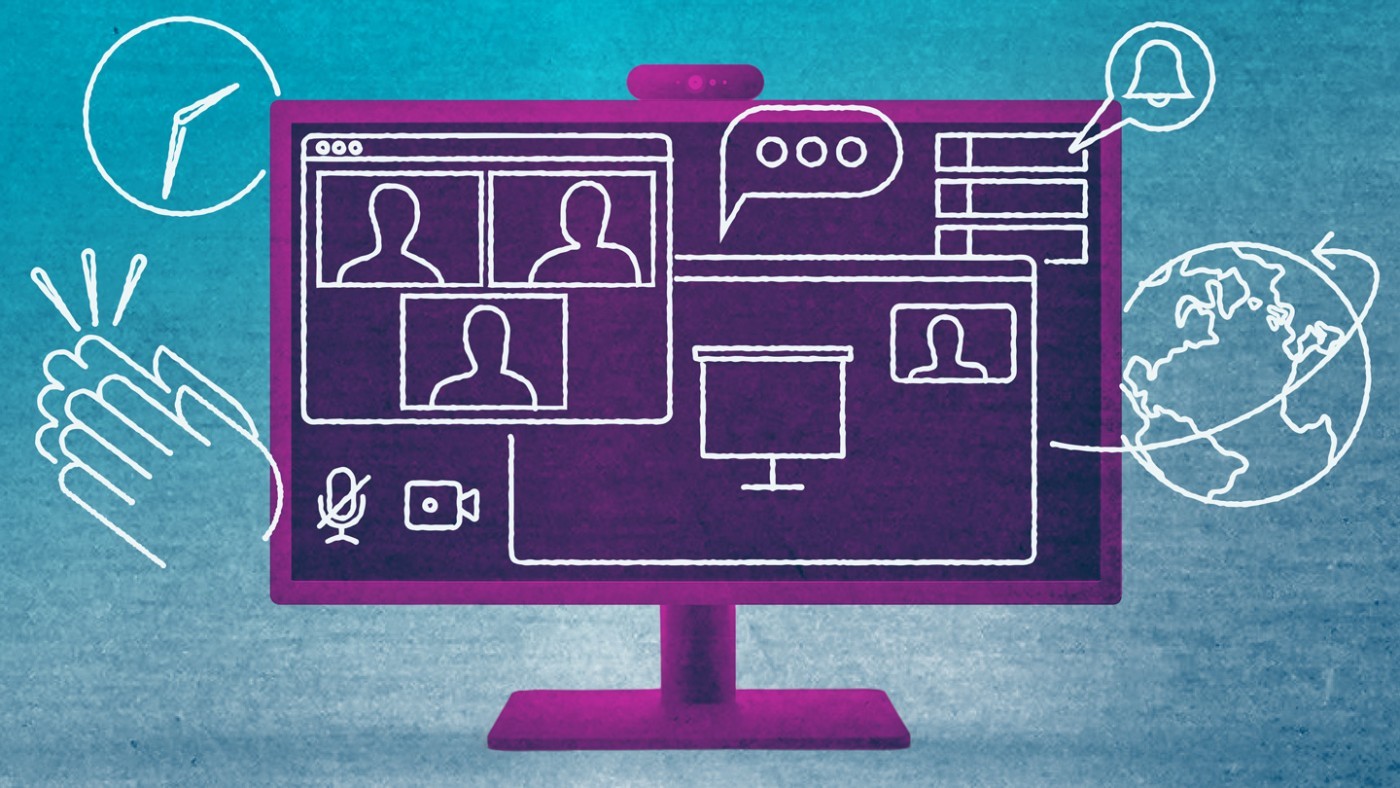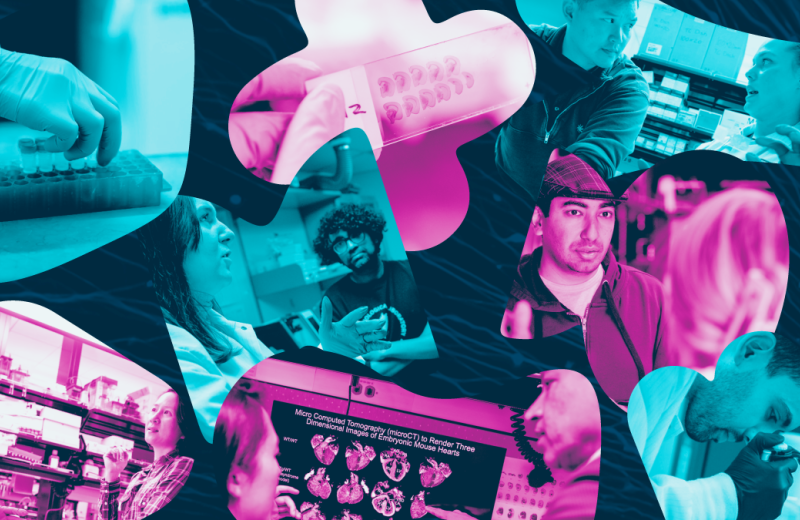Gladstone NOW: The Campaign Join Us on the Journey✕

Online conferences have become more convenient and accessible to staff at all levels of their career.
Even with the rollout of the COVID-19 vaccine, much of our day-to-day lives this year are likely to look the same as they did in 2020, including how we interact professionally, like working from home and attending virtual conferences.
Virtual conferences have come with a number of benefits. Online conferences have removed the cost of travel and lodging, making them much more convenient and accessible to staff at all levels of their career.
Still, the remote experience can have its challenges. Here are some tips on making the most of your virtual conference experience.
Pace Yourself
You’ve likely already become accustomed to Zoom fatigue. Conferences are filled with back-to-back presentations, networking sessions, social hours, and more. Make sure to build time into your schedule to close your computer and stretch your legs. Taking breaks will help avoid fatigue and keep you engaged during sessions.
Build Your Schedule in Advance
Review the speaker lineup in advance. Large conferences may have sessions that overlap, so make sure you know what you want to see live and what you’re willing to catch as a recording. Create reminders on your calendar so you don’t miss a presentation.
Take Advantage of Online Resources
Many of the large conferences have apps for you to check out the schedule, learn more about the speakers, create a profile, engage with other attendees, and find additional resources. Make the most of your experience by exploring the conference websites and apps.
Set Up Your Own Networking Sessions
In addition to the social events hosted by the conference, you can set up your own personal networking session with attendees who share similar interests. Connect with attendees during sessions or find out who is attending in advance of the conference.
Find More Specialized Conferences
Maybe you’ve never been able to attend a conference because of your organization’s budget. Or maybe the conference you’ve always wanted to attend was halfway around the world. Now that conferences have moved online, travel is no longer an issue. In addition, registration fees for many conferences have been cut due to their remote nature. This allows you the possibility to find more unique or specialized conferences that you may have never been able to previously attend.
Besides large conferences, you can also look for virtual meetups, lectures, webinars, and happy hours for professionals in your field that are happening all around the country and globe. Many of these are free or low cost.
Engage Actively
Don’t just sit back and listen. Engage with the speakers and other attendees during live sessions. Scared about going on camera or speaking up? Q&A and chat features give those who are more introverted a chance to engage as well.
Plan for Technical Glitches
Virtual conferences can have technical challenges. Make sure you’re set up for success with a fast internet connection, a comfortable seat, and good lighting, especially if you’re going on camera to present your work.
Adapt to the Digital Format
You’ll have to make some adjustments to accommodate the digital format if you plan on giving a talk or presenting a poster. Reach out to the conference organizers to see if they have a template for digital posters, but best practice include keeping your design simple and consider web accessibility, especially as it relates to colors and font size.
For more helpful tips check out these resources:
Be Present
With conferences moving online, it can feel like just another day at work. But to really make the most of your experience, you need to be present. Avoid distractions like answering email, texts, or other messages from your coworkers. Set expectations and let your coworkers know you’ll be unavailable while you’re attending your conference.
Want to Join the Team?
Our people are our most important asset. We offer a wide array of career opportunities both in our administrative offices and in our labs.
Explore CareersGladstone’s Scientific Highlights of 2025
Gladstone’s Scientific Highlights of 2025
From fundamental insights to translational advances, here’s how Gladstone researchers moved science forward in 2025.
Gladstone Experts Alzheimer’s Disease Autoimmune Diseases COVID-19 Neurological Disease Genomic Immunology Cardiovascular Disease Data Science and Biotechnology Infectious Disease Conklin LabScience in Seconds | Researchers Pinpoint Key Gene Behind Heart Defects in Down Syndrome
Science in Seconds | Researchers Pinpoint Key Gene Behind Heart Defects in Down Syndrome
In this video, Gladstone scientists share how they used stem cells, gene editing, and AI to identify a gene driving heart defects in Down syndrome—and how reducing its levels in mice restored normal heart development, offering hope for future treatments
Gladstone Experts Cardiovascular Disease Data Science and Biotechnology Pollard Lab Srivastava Lab AI Big Data CRISPR/Gene Editing Human Genetics Stem Cells/iPSCsScience in Seconds | The Thinking Microscope: Research Powered by an AI Brain
Science in Seconds | The Thinking Microscope: Research Powered by an AI Brain
In this video, Steve Finkbeiner and Jeremy Linsley showcase Gladstone’s groundbreaking “thinking microscope”—an AI-powered system that can design, conduct, and analyze experiments autonomously to uncover new insights into diseases like Alzheimer’s, Parkinson’s, and ALS.
Gladstone Experts ALS Alzheimer’s Disease Parkinson’s Disease Neurological Disease Finkbeiner Lab AI Big Data



